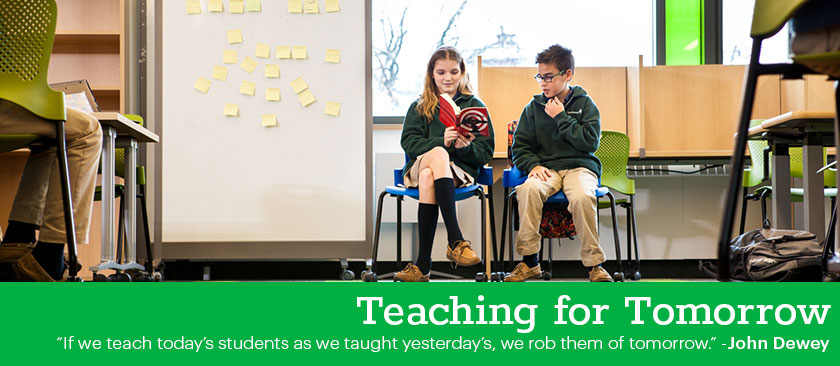Grade 7 Integration Week helps students make vital connections between the different subjects that they learn in school. By creating a challenge for students to respond to that incorporates what they have learned across their courses, from Science, Math, English, and Social Studies students can see the connections between what are often perceived to be separate areas of knowledge.
The theme of Grade 7 Integration Week was “How to Survive a Natural Disaster.” Canadian author Eric Walters, who writes on the theme of survival, spoke to the students about the inspiration behind his stories and what it takes to survive disaster. Being able to hear from an author such as Walters, whose books they have read, was inspiring for students, encouraging them to really think deeply about their work during Integration Week.
For the rest of their activities, students broke into teams to solve problems that would arise in the wake of a natural disaster, taken from the pages of an Eric Walters novel. Each challenge required drawing on concepts they learned in class. For example, students applied their learning about heat, insulation, and distillation from science class to the challenge of how disaster survivors could cook food, keep warm, and purify water.
They designed original prototypes of survival aid devices, strategically selected gear for a survival mission, and wrote journal entries from the perspective of a character in their chosen Eric Walters novel. Each challenge required students to think critically, and encouraged the to create unique solutions.
By approaching one challenge from so many angles, they can also determine the best way to solve multi-disciplinary problems in the future. They can apply the strategies they develop from one subject to solve challenges in another. This will help them be more agile, adaptable learners, skills so crucial for lifelong learning.










